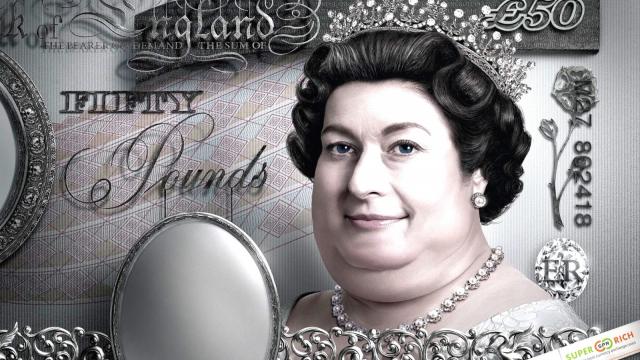
New research finds that richest 0.1 percent of Americans have dramatically expanded their share of the country's overall wealth in the last three decades.
The study finds that the top one-tenth of the country's wealthiest 1 percent has doubled its share of the pie from about 10 percent between 1940-1980 to over 20 percent in 2013.
The analysis, highlighted on the economics blog House of Debt, was conducted by Emmanuel Saez of UC Berkeley and Gabriel Zucman of UC Berkeley and the London School of Economics, who accompanied their findings with charts.
The gains have accrued overwhelmingly for the top 0.1 percent, who now enjoy their largest share of America's wealth since the 1920s. Over the same period, this small contingent has seen its gains rise significantly, while the wealth share for the bottom nine-tenths of the top 1 percent has remained about the same since the 1960.
The study is unique in that it measures inequality in terms of wealth, rather than income. It builds upon a slew of research that details stark and growing inequalities in the United States.
"Wealth is as important as income for thinking about overall well-being," write Princeton's Atif Mian and University of Chicago's Amir Sufi. "For example, wealth may be more important than income in predicting who can send their kids to an expensive college.
"And wealth also represents control. Corporations are controlled by shareholders. So a higher concentration of wealth naturally implies that fewer individuals control the decisions made by firms in the economy."
*
Also, as reported by Floyd Norris of the New York Times:
Corporate profits are at their highest level in at least 85 years. Employee compensation is at the lowest level in 65 years.
The Commerce Department recently estimated that corporations earned $2.1 trillion during 2013, and paid $419 billion in corporate taxes. The after-tax profit of $1.7 trillion amounted to 10 percent of gross domestic product during the year, the first full year it has been that high. In 2012, it was 9.7 percent, itself a record.
Until 2010, the highest level of after-tax profits ever recorded was 9.1 percent, in 1929, the first year that the government began calculating the number.
Before taxes, corporate profits accounted for 12.5 percent of the total economy, tying the previous record that was set in 1942, when World War II pushed up profits for many companies. But in 1942, most of those profits were taxed away. The effective corporate tax rate was nearly 55 percent, in sharp contrast to last year’s figure of under 20 percent.
The trend of higher profits and lower effective taxes has been gaining strength for years, but really picked up after the Great Recession temporarily depressed profits in 2009. The effective rate has been below 20 percent in three of the last five years. Before 2009, the rate had not been that low since 1931.
The statutory top corporate tax rate in the United States is 35 percent, and corporations have been vigorously lobbying to reduce that, saying it puts them at a competitive disadvantage against companies based in other countries, where rates are lower. But there are myriad tax credits, deductions and preferences available, particularly to multinational companies, and the result is that effective tax rates have fallen for many companies.
The Commerce Department also said total wages and salaries last year amounted to $7.1 trillion, or 42.5 percent of the entire economy. That was down from 42.6 percent in 2012 and was lower than in any year previously measured.
Including the cost of employer-paid benefits, like health insurance and pensions, as well as the employer’s share of Social Security and Medicare contributions, the total cost of compensation was $8.9 trillion, or 52.7 percent of G.D.P., down from 53 percent in 2012 and the lowest level since 1948.
Benefits were a steadily rising cost for employers for many decades, but that trend seems to have ended. In 2013, the figure was 10.2 percent, the lowest since 2000.
One way to look at the current situation is to compare 2013 with 2006, the last full year before the recession began. Adjusted for inflation, corporate profits were 28 percent higher, before taxes, last year. But taxes were down by 21 percent,so after-tax profits were up by 36 percent. At the same time, total employee compensation was up by 5 percent, or less than the 7 percent increase in the working-age population over the same period.
Several reasons that have been offered as explanations for the declining share of national income going to workers, including the effects of globalization that have shifted some jobs to lower-paid overseas workers and the declining bargaining power of unions.
The accompanying charts compare President Obama’s administration with each of his predecessors, going back to Herbert Hoover. After-tax corporate profits in President Obama’s five years in office have averaged 9.3 percent of G.D.P. That is a full two percentage points higher than the 7.2 percent averages under Lyndon B. Johnson and George W. Bush, previously the presidents with the highest ratios of corporate profits.
The stock market has reflected that strong performance. Through the end of March, the Standard & Poor’s 500-stock index was up 133 percent since Mr. Obama’s inauguration in 2009. Of the 13 presidents since 1929, only Bill Clinton and Franklin D. Roosevelt saw a larger total increase. On an annualized basis, the Obama administration gains come to 17.7 percent a year, higher than any of the previous presidents. The figures reflect price changes, and are not adjusted for dividends or inflation.
3 WAYS TO SHOW YOUR SUPPORT
- Log in to post comments















